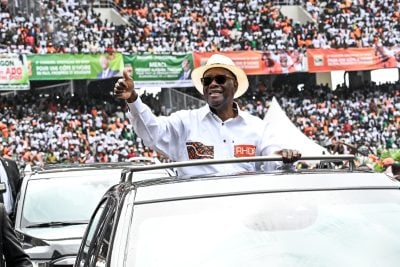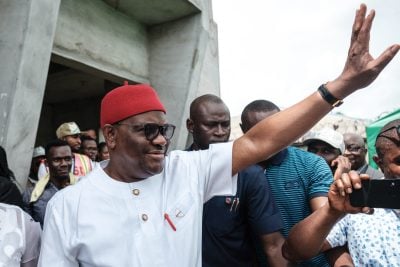On 16 February, president Macky Sall announced that he would organise elections as quickly as possible. The announcement was the second major shock to hit businesses operating in Senegal in as many weeks. President Sall had announced on 3 February that elections due to be held on 25 February would be postponed, raising considerable concerns over the sanctity of Senegalese democracy as well as business continuity in the West African country.
Although President Sall had created some confusion over whether or not he would stand for an unconstitutional third term in 2023, he eventually announced in July that he intended to step down. This pacified protesters who had mobilised over his potential third term bid.
Scores of people were killed, and millions of dollars of damage were done to shops and businesses that were looted during the unrest. When Sall made the announcement, the whole country breathed a sigh of relief.
Senegal is the only country in West Africa never to have experienced a coup – which is all the more notable given that Guinea, Mali, Niger and Burkina Faso have between them suffered six since 2020. But following Sall’s announcement at the start of February concerns around the stability of the country, which is currently developing reserves of over 100 trillion cubic feet of gas, re-emerged.
President Sall said the decision to postpone the poll was due to persistent disputes over the way that the constitutional court had accepted some candidates for the poll but not others. In particular, the exclusion of high-profile opposition candidate Karim Wade had raised eyebrows. Sall said that controversy over the candidates for the election would undermine its legitimacy and that this required a national dialogue and a resolution of these issues before a poll could be held. But under significant pressure that decision has again been reversed.
New opposition
A new political movement, known as Aar Sunu Election (Let’s Protect Our Election), has emerged and includes some 40 civil, religious and professional groups. Alongside opposition figures, it alleged that the postponement was illegal. Critics of the president claimed that he had postponed the poll because he feared his chosen successor, current Prime Minister Amadou Ba, was not strong enough to win it.
Outrage sparked nationwide anti-Sall protests, prompting some clashes with security forces in which at least three people died.
This kind of unrest is not good for business.
Previous spates of protests linked to the forthcoming elections have seen major rioting and looting targeting businesses, especially in Dakar and Ziguinchor. In June 2023 the Dem Dikk bus company
reported $5.75m in losses due to attacks on its vehicles and restrictions on its operations. The government estimates that one day of protests can slow economic output by around $33m.
The latest round of demonstrations caused some similar problems for businesses, with Aar Sunu Election warning that a general strike was on the cards. Local companies were deeply concerned by the news.
Abdoulaye Faye is a Senegalese entrepreneur who is co-founder of Proxalys, an app that helps informal distributors, particularly in the agricultural sector, take orders, manage administration, and cover supply chain logistics. He said Sall’s decision “plunged our country into a context of uncertainty”.
“When there are protests people don’t open their shops because they are scared of criminal activity. This is a problem for our team members who cannot visit shopkeepers to teach them how to use our app. When there are protests, people don’t want to do business, so we see acquisitions of the app drop.”
Operations on standby
A Senegalese entrepreneur who works in the charity sector, but wishes to remain anonymous, told African Business that he had been forced to place all his operations on standby due to uncertainty over when the election would take place. “Our operations have been really seriously affected,” he said. “We have put everything on standby to wait and see whether the election will take place or not.”
The problem for many businesses was that few people expected the president to postpone the poll at such a late stage – so most had not planned for such an eventuality. “We have not put anything in place to mitigate against the uncertainty,” noted the charity entrepreneur. “We are waiting to see what happens and crossing our fingers that the president decides to hold the elections.”
President Macky Sall must have heard their prayers when he announced on 16 February that he would go ahead with the election after all, following an outright rejection of his postponement by the constitutional court on 15 February.
Although this will reduce the risk of major violent unrest over the coming weeks, reducing the threats of physical damage to businesses, it does still raise questions over the growing unpredictability of the Senegalese political environment and its democratic stability.
Concerns surround the longer-term impact of such a hugely destabilising act on a country which has long been renowned for being a beacon of stability in West Africa. This will be worrying for local and foreign businesses, even despite the backtracking on the decision.
“The postponement has already done major damage to Senegal’s reputation as a bastion of democracy on the continent, and although the effect is difficult to quantify it will most likely shake up the perception of investors that Senegal’s stability should be taken for granted,” says Martin Roberts, deputy head, Sub-Saharan Africa at S&P Global Market Intelligence. Businesses in Senegal are concerned about this longer-term damage. “Senegal had a reputation as a stable country, but we fear this event will decrease investment partners and their interest in doing business with us,” says Faye.
“The postponement of the election was unprecedented for Senegal… Our clients have in recent days expressed concerns about the long-term stability of the country as a result of this decision,” explains Byron Cabrol, Sub-Saharan Africa analyst at Dragonfly Intelligence.
International reputation
The rapid resolution of the situation and Sall’s backtracking on his decision will likely have reassured some investors and the international community, which had heavily pressured Sall to retreat. Senegal’s constitutional court continues to be independent and democratic rule in Senegal remains intact.
However, the fact that the president could announce such a drastic measure and then change his mind so quickly will likely leave a sour taste in the mouths of many Senegalese people and businesses, who will not be so quick to move on.
Concerns will persist that until the election takes place further unpredictable events remain on the cards and businesses will need to mitigate against the risks.
There also remains a risk that President Sall will continue to delay announcing a new date for elections, allowing him to remain in office beyond 2 April, when his mandate expires. As one protester who spoke to AFP on Saturday said of President Sall, “I just don’t trust him. I’m waiting to see if he keeps his word.”
Want to continue reading? Subscribe today.
You've read all your free articles for this month! Subscribe now to enjoy full access to our content.
Digital Monthly
£8.00 / month
Receive full unlimited access to our articles, opinions, podcasts and more.
Digital Yearly
£70.00 / year
Our best value offer - save £26 and gain access to all of our digital content for an entire year!
 Sign in with Google
Sign in with Google 



